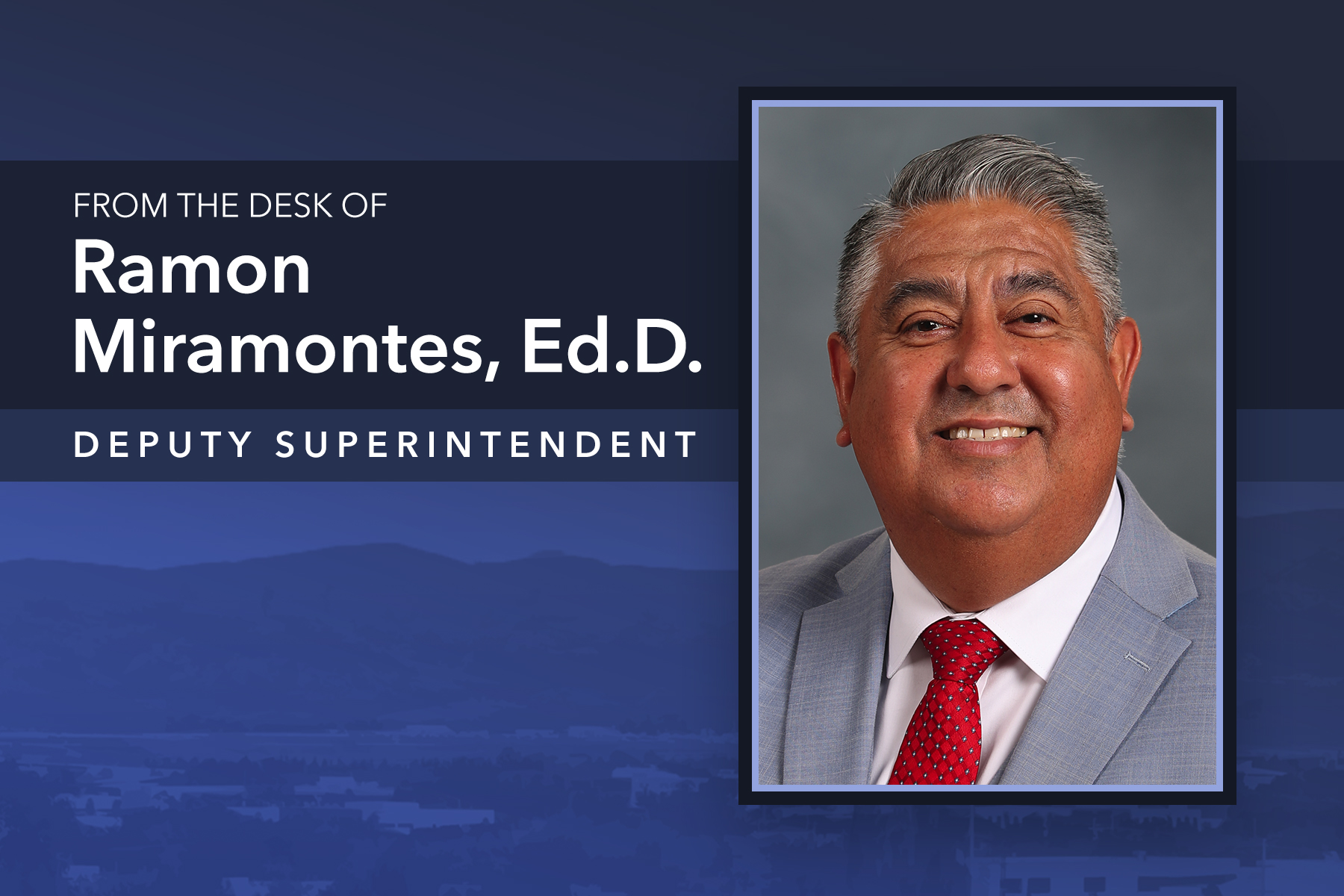In the Star Wars universe, whenever a spacecraft makes the jump to light speed, the stars outside the cockpit stretch out into luminous streaks. It’s a mesmerizing visual of acceleration that brings to mind the dizzying advancement of technology here on planet Earth — and the urgent need for educational systems to keep pace.

With artificial intelligence poised to reshape workplaces and society at large, the Orange County Department of Education is moving ahead with an ambitious initiative that will evaluate and determine the best approaches for integrating AI into teaching and learning.
This could include more personalized learning, real-time feedback for students and teachers, or the automation of routine tasks, allowing educators to focus more on matters that demand human insight, judgment and creative thinking.
As this work is just now getting underway, specific outcomes lie beyond the horizon. But we know this won’t be a solitary endeavor.
Led by our Educational Services division, OCDE is taking the first steps of a collaborative journey that will involve school district leaders, industry partners, educators, parents and students. And we envision it taking place in three distinct phases.
Staying ahead of the curve
The first phase will seek to elevate AI literacy and leadership, establishing a common understanding and terminology in Orange County.
The second phase will develop strategies and an implementation plan in collaboration with leaders of the county’s 28 independent school districts.
Finally, a third phase will evaluate our efforts, gather data and plan for the future. OCDE’s commitment to continuous improvement and community engagement ensures that the feedback loop will remain open, fostering a culture of learning and adaptability.
OCDE has long sought to stay ahead of the curve when it comes to emerging technologies, but AI represents something we haven’t quite seen before.
These newer tools simulate human intelligence, enabling computers to perform tasks that typically require human cognitive abilities. As such, they have the potential to impact just about every aspect of our work and lives, from teaching and learning to health care, transportation, media, energy, finance and customer service.
Adaptability and critical thinking
While ChatGPT and other publicly available services aren’t perfect, remember that they are programmed to learn from us, which means they can and will evolve exponentially. In other words, the examples we see today are the worst versions we’re going to encounter moving forward.
But preparing students for an AI-driven future isn’t just about passing along the latest technical skills. It’s about teaching adaptability, critical thinking and ethical decision-making.
By integrating AI literacy across educational settings, OCDE and our partners will be able to equip students with the capacity to navigate an increasingly complex world without losing those traits that make us uniquely human, like kindness, character and artistic expression. And through community engagement, we can pursue a shared vision for AI that aligns with our local values and needs.
The need for education to remain in stride with technology is undeniable, and the Orange County Department of Education has long been a leader in this arena. But collaboration is the key to what lies ahead.
That’s how we’ll ensure that the next generation isn’t just ready to embrace the challenges of an AI-driven world, but that they’re poised to drive innovation, forge new paths and contribute meaningfully to a future that’s constantly in motion.
